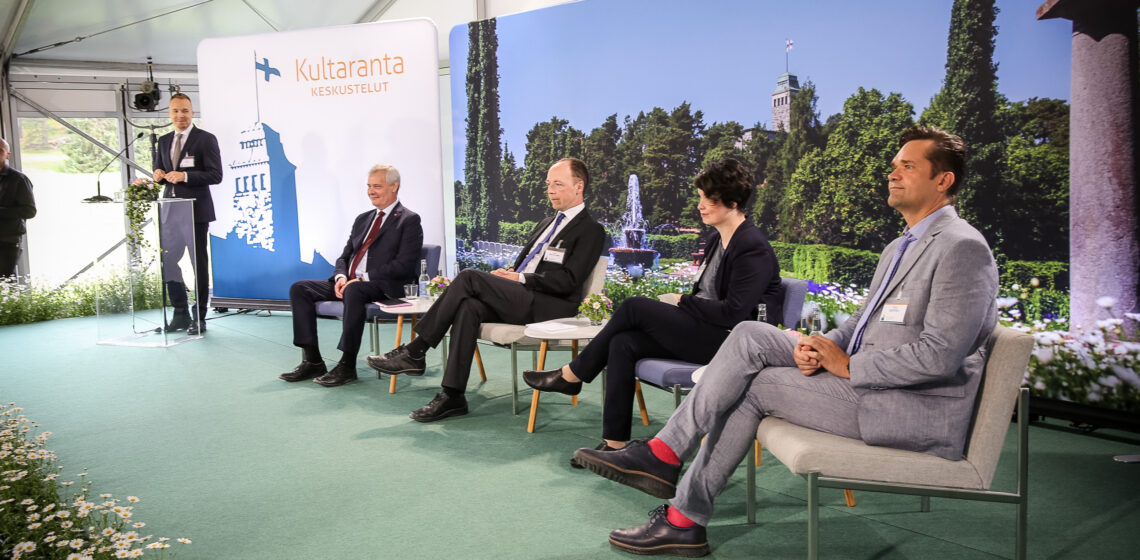The second day of the Kultaranta Talks on 17 June took off with a panel discussion on European security and its makers. The topic was approached from the point of view of the similarities and differences between the European countries.
At the start of the discussion, moderator Olli Seuri asked the panellists to think, what Europe has in common. Prime Minister Antti Rinne said that what unites Europe is the ambition to maintain peace and stability. But what worries him is that “in various parts of Europe, the ideas of the rule of law, democracy and freedom of speech have become harsher.”
Jussi Halla-aho, Chairperson of the Finns Party, believed that the matters uniting us Europeans are best seen when we are outside Europe. “Then we realise that we still share more or less the same views on the social system, democracy, equality and the rule of law.” Halla-aho agreed that democracy and freedom of speech are currently being tested, albeit his view might differ from that of Prime Minister Rinne’s. “The results of democratic elections in various parts of Europe are considered a problem. As if democracy were threatening democracy,” he said.
Pressure and dividing lines
Mika Aaltola, Programme Director of the Finnish Institute of International Affairs, talked about the status of the European Union and its member states under two-way pressure. On the one hand, pressure is created by global powers, such as the return of great power politics, and by the risks introduced by digitalisation, such as disinformation campaigns. On the other hand, pressures are created by our everyday lives, such as employment or the lack of it. According to Aaltola, these pressures are universal and explain the rise of neo-nationalism in many countries: “People are troubled and looking for new answers. Who can provide these answers in a neat package, remains to be seen.”
According to Anna-Liina Kauhanen, Foreign Correspondent in Berlin for Helsingin Sanomat daily newspaper, a major dividing line inside the EU is the approach to a common immigration and asylum policy. She said that another major challenge for the credibility of the EU is how to solve the differing views on democracy within Europe. As a third question she raised the role of the EU in the regulation of the digital world, which she expected to become an issue of security policy.


